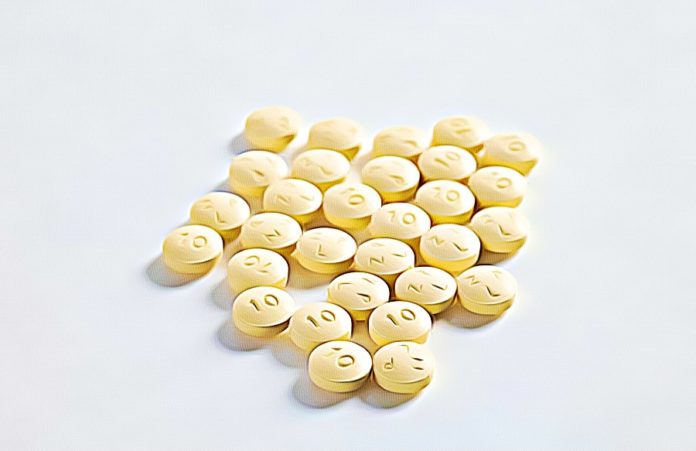Man has come a long way in its treatment of mental health and illnesses. For much of the past, the mentally ill were considered lunatics, psychos, and crackheads, in which their skulls were literally cracked open with an auger, bore, or saw. In fact, some medieval treatments would have most likely been the cause of some deaths.
Rather than benefiting patients, medical practitioners used countless inhumane and outlandish methods, such as brain stimulation, cranial drills, hot showers, and tooth extractions—any of which could forever traumatize them. Still, amidst medical disasters and abusive treatments, genuine breakthroughs arose, contributing to the modern psychotherapy we know today.
Lexapro Withdrawal
Withdrawal refers to the physical and mental effects someone experiences after stopping the use or reducing the intake of a substance. A study by Matthew Gabriel and Verinder Sharma suggests that about twenty percent of patients experience withdrawal symptoms when they reduce the dose or stop the use of an antidepressant.
People who take Lexapro are less likely to experience withdrawal symptoms due to its slow build-up in the blood. However, those who have taken other SSRI medications for a long time have an increased chance of developing withdrawal symptoms.
Lexapro withdrawal symptoms occur because of how it affects the brain. SSRI medications increase the levels of serotonin in the brain. To prevent overstimulation in the brain, some receptors will be shut down. Once a person stops taking Lexapro, the body doesn’t adjust immediately. The body will need time to replenish the sudden decrease in the amount of serotonin. As a result, you may experience some symptoms of withdrawal!
The most common Lexapro withdrawal symptoms include:
- Nausea
- Chills
- Confusion
- Headache
- Agitation
- Irritability
- Impaired memory
- Concentration issues
Modern Treatments for Mental Disorders
As doctors and scientists learn more about the cause of mental illnesses, society has slowly but surely shed the stereotypes and prejudice toward the mentally ill. Today, the mental health community can benefit from effective and safe treatments and access to care. Medical researchers continue to study the human brain and conduct studies to gain more insight, which may modify existing treatments.
Depression Medications
Depression is a mental illness that negatively affects your thoughts, emotions, and actions. This condition causes feelings of sadness and loss of interest, which may lead to a variety of emotional and physical problems.
The treatment and perception toward depression have significantly varied over the centuries. Unlike during the Age of Enlightenment, when depression was considered an inherited sickness that you could not change, modern medicine has made it possible for the depressed to function throughout their daily lives and even prevent the condition from recurring.

A Happy Pill?
Living with depression is difficult, but medications and psychotherapy can help. Your doctor or physician may have prescribed you medications to relieve symptoms, such as antidepressants. Antidepressants are medications that help relieve symptoms of depression and improve overall mental health by correcting the imbalances of neurotransmitters in the brain.
Selective serotonin reuptake inhibitors (SSRIs) are one of the most common antidepressants prescribed to patients. This class of drugs works by increasing serotonin levels, the ‘feel good hormone’ in the brain. Compared to other depressants, they have fewer side effects.
Some examples of SSRI antidepressants include:
- Citalopram (Celexa)
- Paroxetine (Paxil)
- Dapoxetine (Priligy)
- Fluvoxamine (Faverin)
- Escitalopram (Lexapro)
What Is Lexapro?
Lexapro, or escitalopram, is an SSRI used to treat depression or anxiety. Like Prozac and Zoloft, it restores the balance in the brain and reduces the symptoms of depression and anxiety. This drug is often used for those who are in rehab, particularly substance abuse and alcohol addiction. Lexapro is known to reduce one’s cravings for alcohol and reduce feelings of depression and anxiety for recovering addicts.
This drug comes in tablet form—which comes in a 5, 10, or 20 mg tablet—but it is also available in liquid form. When using the liquid form of this medication, you’re required to measure it using a particular measuring device or spoon. Doctors do not recommend using a household spoon, as you might not get the correct dose.
The recommended tablet dose for adults is 10 to 20 mg per day, but it varies depending on:
- Age
- Medical condition
- Response to treatment
- Other medications you may be taking
Be honest with your doctor and pharmacist—let them know about all the products you use, including prescription and nonprescription drugs, as well as herbal products. Make sure to read the medication guide and the patient information leaflet provided by your pharmacist.
The Side Effects of Lexapro
Although Lexapro is considered to be less severe than other types of antidepressants, some side effects could still occur. Your doctor may direct you to start taking Lexapro at a low dose and gradually increase it to reduce the side effects you may experience.
The most common side effects when taking Lexapro and other SSRIs include:
- Headache
- Nausea
- Dizziness
- Fatigue
- Insomnia
- Heartburn
- Feeling agitated
- Blurred vision
- Flu-like symptoms
- Low sex drive
- Erectile dysfunction
Many people experience only mild side effects when taking SSRIs, and they improve over the first or second week of taking the medication. However, sexual side effects are an exception; they often do not diminish over time.
Risk of Addiction and Abuse
Lexapro is known to reduce alcohol cravings effectively, so it is used as an adjunct treatment to overcome addiction. However, this antidepressant doesn’t always reduce alcohol cravings or symptoms of depression for all patients. There are rare occasions where medicating with Lexapro during the recovery process causes an increase in drug and alcohol cravings.
Many reported cases state that patients who did not have a history of substance abuse developed an alcohol addiction once they took Lexapro. The alcohol cravings of these patients quickly subsided when they stopped the medication.
The Food and Drug Association (FDA) disclosed that Lexapro is non-addictive, but when taken recreationally or against prescribed orders, it can cause psychological addiction. Escitalopram usually takes about four to six weeks to work, which may cause people to take larger doses to improve their mood or to experience euphoria.
Lexapro can be abused by:
- Taking more than you were prescribed
- Forging prescriptions for Lexapro
- Taking Lexapro that was not prescribed to you
- Buying Lexapro from friends, family members, or dealers
- Taking Lexapro after symptoms of depression and anxiety have subsided
What You Can Do
If you want to quit Lexapro to find relief from the withdrawal symptoms, don’t try to quit cold turkey before discussing things with your doctor. Suddenly quitting Lexapro will only increase the likelihood of severe withdrawal, leading to a suicidal state of mind!
To avoid severe withdrawal symptoms, set up an appointment with your prescribing doctor so that they can come up with an effective quitting plan and dose schedule. Tapering off your medication slowly involves adjusting your dose by a slow amount, gradually decreasing until your body gets used to the low levels of medication.
Conclusion
Lexapro has helped many people overcome their depression, but it doesn’t work for everyone. If you want to get off this antidepressant, you must take the proper steps for a seamless transition. Talk to your doctor about the plan of action to take, and take good care of your health as you stop taking the medication.
Sources:
















